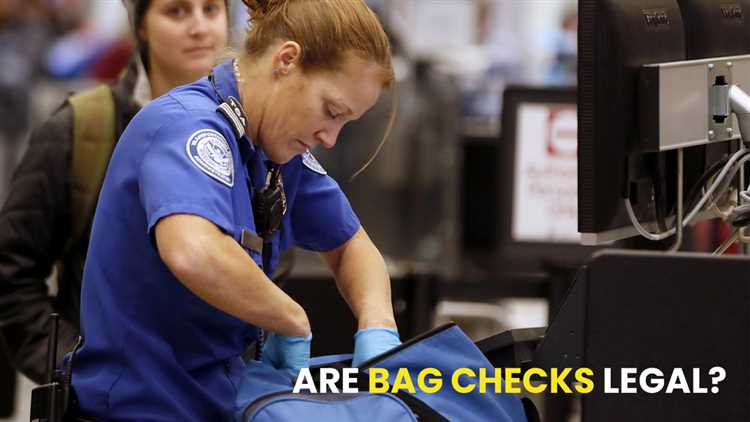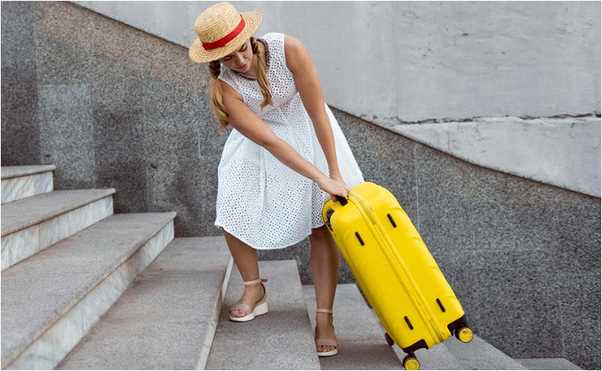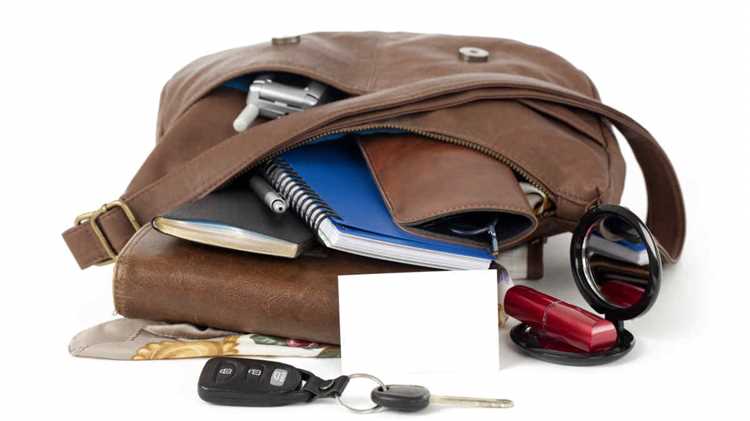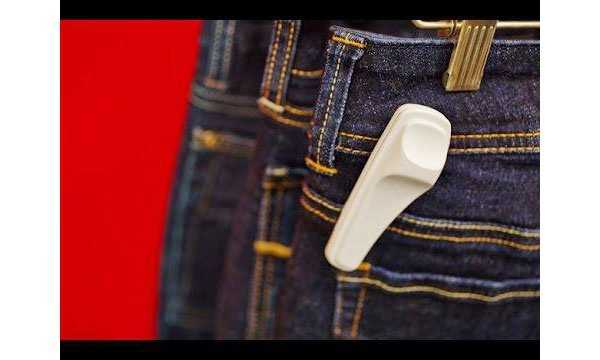
When you go shopping, you expect to have an enjoyable experience and find the products you need. However, it’s not uncommon for stores to implement bag checks as a security measure to prevent theft. But, can stores legally check your bag? And what are your rights and protections as a customer?
First and foremost, it’s important to understand that while stores have the right to protect their merchandise, they also need to respect your privacy and adhere to the law. Just because a store has a security policy in place doesn’t mean they can freely invade your personal belongings.
In most cases, stores have the legal authority to conduct bag checks if they have reasonable suspicion that you may be shoplifting. This means that store employees must have a good reason to suspect you specifically, rather than randomly checking every customer’s bag. However, what constitutes reasonable suspicion can vary depending on the jurisdiction and specific circumstances.
It’s worth noting that even if a store legally checks your bag, they must do so in a manner that doesn’t violate your rights. This means they can’t physically search you or touch you without your consent. They should also respect your dignity and privacy throughout the process.
- Understanding Your Rights as a Shopper
- Your Right to Refuse Bag Checks
- Exceptions to Bag Check Refusal
- Legal Basis for Bag Checks
- Consent and Refusal: When Can You Say No?
- What to Do If You Feel Your Rights Have Been Violated
- Protecting Your Privacy: Tips for Secure Shopping
- Know the Laws: Bag Check Policies by State
- States with No Bag Check Laws
- States with Bag Check Laws
- Question-answer:
- What are my rights if a store wants to check my bag?
- Can stores legally check my bag without my consent?
- What protections do I have if a store unlawfully searches my bag?
- Can stores check all types of bags or just purses and backpacks?
- Do I need to show my receipt when leaving a store?
- Can stores legally check your bag without your consent?
- What rights do I have if a store checks my bag without my consent?
Understanding Your Rights as a Shopper
As a shopper, it is important to be aware of your rights when visiting stores and interacting with retail employees. Understanding what you are legally entitled to can help ensure a positive shopping experience and protect yourself from any potential infringements on your rights.
Your Right to Refuse Bag Checks

In most jurisdictions, stores do not have the legal right to force you to submit to a bag check. It is generally considered an invasion of your privacy, and stores must rely on your voluntary compliance. While stores may ask for permission to check your bag, you have the right to refuse. However, it’s important to note that stores also have the right to refuse service to anyone, so refusing a bag check may result in being asked to leave the store.
Exceptions to Bag Check Refusal

There are certain situations in which a store may have the legal right to conduct a bag check without your consent. These situations typically involve specific security or safety concerns, such as when you set off an alarm while leaving the store, or if there is reasonable suspicion that you have stolen something. However, even in these cases, the store must have reasonable grounds for their suspicion, and their actions should align with local laws and regulations.
It is also important to note that bag checks must be carried out in a nondiscriminatory manner. Stores cannot selectively target individuals based on their race, ethnicity, gender, or any other protected characteristic. If you believe you have been singled out for a bag check due to discrimination, you may have legal grounds for recourse.
Ultimately, knowing your rights as a shopper can help you navigate store policies and protect your privacy. It is always a good idea to familiarize yourself with the laws in your jurisdiction and to be aware of any additional policies or regulations that stores may have in place. By understanding your rights, you can shop with confidence and assert your privacy when necessary.
Legal Basis for Bag Checks
Many stores have policies that allow them to check customers’ bags upon exiting the premises. While this practice may seem intrusive, it is often legal under certain conditions. In the United States, for example, stores have the right to protect their property and prevent theft. However, it is important to understand the legal basis for these bag checks and what rights customers have.
One legal basis for bag checks is a store’s right to protect its property. Stores invest a significant amount of money in merchandise and equipment, and they have the right to take reasonable measures to prevent theft. Bag checks can be seen as a reasonable measure to deter potential shoplifters and protect the store’s assets.
Another legal basis for bag checks is an agreement between the store and the customers. Some stores have signs near the entrance or at the checkout counter stating that bags may be subject to inspection before leaving the store. By entering the store, customers are implicitly agreeing to comply with these policies and allow their bags to be checked if necessary.
However, despite these legal bases, stores must still abide by certain laws and regulations when conducting bag checks. They must respect customers’ privacy rights and conduct the checks in a non-discriminatory manner. This means that stores cannot selectively check certain customers’ bags based on their race, ethnicity, or other protected characteristics.
It is also important to note that while stores have the right to request bag checks, customers also have rights. Customers have the right to refuse a bag check, but stores may then choose to deny them entry or refuse service. If a store improperly detains a customer or invades their privacy during a bag check, the customer may have legal grounds for a complaint or even a lawsuit.
In conclusion, bag checks by stores have a legal basis under certain conditions. Stores have the right to protect their property and prevent theft, and customers implicitly agree to these policies when entering the store. However, stores must still respect customers’ privacy rights and conduct the checks in a non-discriminatory manner. Customers also have the right to refuse a bag check, but stores may choose not to allow them entry or service. It is important for both stores and customers to understand and respect each other’s rights in these situations.
Consent and Refusal: When Can You Say No?
Knowing your rights when it comes to store bag checks is crucial in order to protect your personal privacy and maintain your autonomy. While many stores have the right to implement bag check policies, you, as a customer, still have certain rights when it comes to providing consent or refusing a bag check.
One important factor to consider is whether or not you have agreed to the store’s terms and conditions beforehand. If you have signed or agreed to these terms, which may include allowing store personnel to check your bags, it can be more difficult to refuse a bag check without consequences. However, it’s still important to understand your rights and ask for clarification or express your concerns with the store management.
In certain cases, stores may have the right to detain you if you refuse a bag check. This could be due to specific state or local laws, or because you are on private property. It’s important to familiarize yourself with the laws and regulations in your area to know what to expect if you choose to refuse a bag check.
However, there are also times when you can legally say no to a bag check. If a store does not have a clear bag check policy and you have not agreed to any terms and conditions, you have the right to refuse the check. Additionally, if store personnel act in a discriminatory or unreasonable manner during the bag check, you have the right to refuse and seek legal recourse if necessary.
It’s important to note that while you may have the right to refuse a bag check, stores also have the right to deny service to customers who do not comply with their policies. If you consistently refuse bag checks, a store may choose to ban you from their premises. It’s essential to weigh the risks and benefits and decide how important your privacy and autonomy are to you in each situation.
| When You Can Say No: | When You Should Be Cautious: |
|---|---|
|
|
Ultimately, asserting your rights and protecting your personal privacy is important when it comes to store bag checks. Understanding the laws and regulations in your area, as well as the store’s policies, can help you make informed decisions and advocate for yourself when necessary.
What to Do If You Feel Your Rights Have Been Violated
If you believe that your rights have been violated during a bag check at a store, it is important to know what actions you can take to address the situation.
1. Stay Calm: It is essential to remain calm and composed in order to effectively address the situation. Losing your temper or becoming aggressive may escalate the issue further.
2. Gather Evidence: If you believe your rights have been violated, try to gather evidence to support your claim. This can be done by taking pictures or videos of the incident or obtaining witness statements.
3. Know Your Rights: Familiarize yourself with the laws and regulations regarding store bag checks in your jurisdiction. This will help you understand if your rights have been violated and what legal recourse may be available to you.
4. Talk to the Store Manager: Contact the store manager and calmly explain your concerns and why you believe your rights have been violated. Provide any evidence you have gathered to support your claim.
5. File a Complaint: If the store manager is unresponsive or unwilling to address your concerns, you may consider filing a formal complaint with the store’s corporate headquarters or with a local consumer protection agency.
6. Seek Legal Advice: If you believe your rights have been seriously violated or if the store fails to adequately address your concerns, you may want to consult with a lawyer who specializes in civil rights or consumer protection law.
Remember, it is important to know your rights and take appropriate action if you feel they have been violated during a store bag check. By staying calm, gathering evidence, and knowing your rights, you can take steps to address any violations and protect your rights moving forward.
Protecting Your Privacy: Tips for Secure Shopping

When it comes to shopping, it’s important to prioritize your privacy and ensure that your personal information is kept secure. Here are some tips to help you shop safely and protect your privacy:
1. Use secure websites: Make sure you only shop on websites that are secure and have proper encryption. Look for the “https://” at the beginning of the website address, which indicates a secure connection.
2. Avoid public Wi-Fi: Public Wi-Fi networks can be vulnerable to hackers. Avoid making purchases or accessing personal information while connected to public Wi-Fi. Instead, use a secure and private network.
3. Create strong and unique passwords: Use a combination of letters, numbers, and symbols to create a strong and unique password for your shopping accounts. Avoid using the same password for multiple accounts.
4. Be cautious of phishing attempts: Watch out for suspicious emails or messages asking for personal information or payment details. Legitimate companies will never ask for this information via email or text message.
5. Check for secure payment options: Before making a purchase, ensure that the website offers secure payment options such as PayPal or credit card encryption. Avoid sharing your payment information on insecure websites.
6. Read the privacy policy: Take the time to read the privacy policy of the website you are shopping on. Make sure they have proper measures in place to protect your personal information.
7. Use two-factor authentication: Enable two-factor authentication whenever possible. This adds an extra layer of security to your accounts, making it more difficult for hackers to gain access.
8. Keep your devices updated: Regularly update your devices’ operating systems and security software. Updates often include important security patches that help protect against vulnerabilities.
9. Be mindful of what information you share: Only provide necessary information when making a purchase. Avoid sharing unnecessary personal details that could be used for identity theft.
10. Monitor your accounts: Regularly review your bank and credit card statements for any unauthorized charges. Report any suspicious activity to your financial institution immediately.
By following these tips, you can shop with confidence and protect your privacy while enjoying the convenience of online shopping. Remember to stay vigilant and prioritize your security at all times.
Know the Laws: Bag Check Policies by State
It’s important to be aware of the bag check policies in your state, as they may vary depending on where you live. While stores generally have the right to check your bag, there are certain laws and protections in place that dictate how these checks can be conducted.
States with No Bag Check Laws
Some states do not have any specific laws regarding bag checks, meaning that stores are generally free to check your bag without restriction. These states include:
- Texas
- Florida
- Georgia
- Arizona
- Ohio
States with Bag Check Laws
Other states have specific laws in place that govern bag checks and provide certain protections to consumers. These laws may set requirements for stores, such as displaying notices about the bag check policy or obtaining your consent before conducting a check. Here are a few examples of states with bag check laws:
- California: In California, stores must have a sign posted at the entrance stating that the establishment reserves the right to check bags. The store can only check bags if the sign is visible and the person has exited without purchasing anything.
- New York: In New York, stores can only check bags if there is reasonable suspicion of theft or a crime. They must also use a transparent bag or container to hold the customer’s items during the check.
- Illinois: In Illinois, stores must obtain the customer’s consent before conducting a bag check. They cannot detain the customer against their will or search the bag without permission.
It’s important to familiarize yourself with the bag check laws in your state to understand your rights and protections when shopping. If you believe your rights have been violated, you may want to consult with a legal professional who can provide guidance based on the specific laws in your jurisdiction.
Question-answer:
What are my rights if a store wants to check my bag?
If a store wants to check your bag, you have the right to refuse the search. However, the store also has the right to ask you to leave their premises if you refuse. It is important to know that in some cases, certain stores have policies that require employees to check customers’ bags, and by entering the store, you are agreeing to follow their rules. It’s always a good idea to know your rights and the specific store’s policies before entering.
Can stores legally check my bag without my consent?
In most cases, stores cannot legally check your bag without your consent. However, there are exceptions. If a store has clear signs posted at entry points notifying customers that their bags may be checked, and you choose to enter the store, you are giving implied consent for the bag check. Additionally, stores may have policies that require employees to check bags as a condition of employment. It’s always a good idea to be aware of the store’s policies and signage before entering.
What protections do I have if a store unlawfully searches my bag?
If a store unlawfully searches your bag without your consent and without reasonable suspicion, they may be liable for invasion of privacy or unlawful search and seizure. In such cases, you may have grounds for legal action against the store. It is important to consult with an attorney to determine the appropriate course of action based on the specific circumstances.
Can stores check all types of bags or just purses and backpacks?
The specific types of bags stores can check may vary depending on their policies and the jurisdiction in which they operate. Generally, stores can check any bag that you bring onto their premises, including purses, backpacks, briefcases, and shopping bags. However, it is important to note that stores cannot discriminate based on the type of bag when implementing bag check policies.
Do I need to show my receipt when leaving a store?
In most cases, you do not need to show your receipt when leaving a store. However, some stores may have policies that require customers to show their receipt as a security measure. These policies may apply to all customers or only to those who have certain items in their bags. It’s always a good idea to know the store’s policies before making a purchase.
Can stores legally check your bag without your consent?
No, stores cannot legally check your bag without your consent. Private businesses do not have the authority to search your personal belongings without your permission or a valid reason to suspect theft or illegal activity.
What rights do I have if a store checks my bag without my consent?
If a store checks your bag without your consent, you have the right to refuse the search. You can also ask for the store’s policy on bag checks and the reason for the search. If you believe your rights have been violated, you can file a complaint with the store’s management or, in some cases, with relevant authorities.